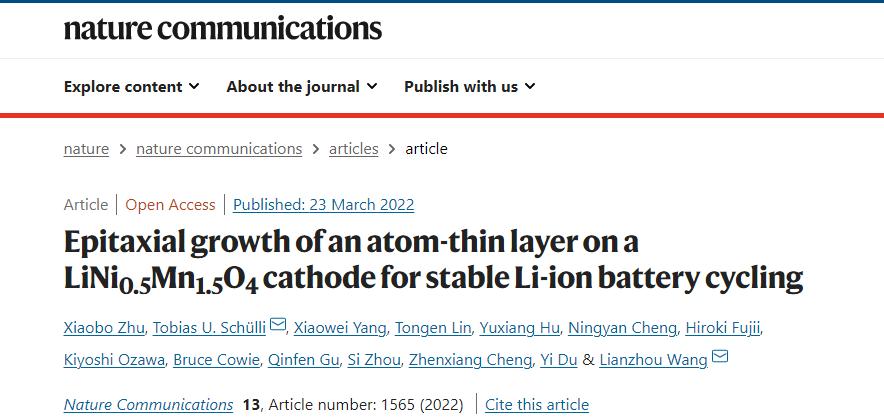IT House April 3 news, according to Xinhua News Agency, Australian researchers have developed a technology, just add an extremely thin protective layer to the battery electrode - only one atom thick, can greatly improve battery life, help the application of extremely high energy density lithium-ion batteries in electric vehicles, and reduce the environmental hazards of waste batteries.
Researchers at the University of Queensland (UQ) in Australia say the findings could double the life of high-energy-density batteries, at least to the point where they can be used on a daily basis, rather than degrading in hundreds of charge-discharge cycles.
Once this research is commercialized, we may see electric vehicles with longer range and longer battery life.
IT House understands that the paper on this study has been published in the journal Nature Communications, including a number of Chinese researchers.

The researchers said that lithium batteries have large energy density and high output voltage, and can be widely used in smart phones, notebook computers, electric vehicles and other products, but its cathode materials usually use metal cobalt, which is not only expensive but also toxic.
Xinhua said Wang Lianzhou, a professor at the University of Queensland's School of Chemical Engineering who led the study, said they had "added" a new atomic-thick coating to the cathode of the lithium battery, which added nickel and magnesium materials to the nano-coating, which is extremely strong and durable, and nickel and magnesium are cheap and release fewer toxic substances. This new coating has a strong adhesion and can be firmly attached to the positive pole of the battery, preventing the battery material from decomposing over time and greatly extending the battery life. After this treatment, the lithium battery can still maintain stable performance after more than 1000 times of charge and discharge, which is more than double the number of charge and discharge of the original battery.
Wang Lianzhou said that under the dual pressure of industrial development and low-carbon environmental protection, it is crucial to develop lithium batteries with lower cost, higher energy density and longer cycle life. He believes that this new technology is expected to have wider applications in areas such as consumer electronics, electric vehicles and energy storage, and hopes that this technology can achieve industrial scale production within two or three years.